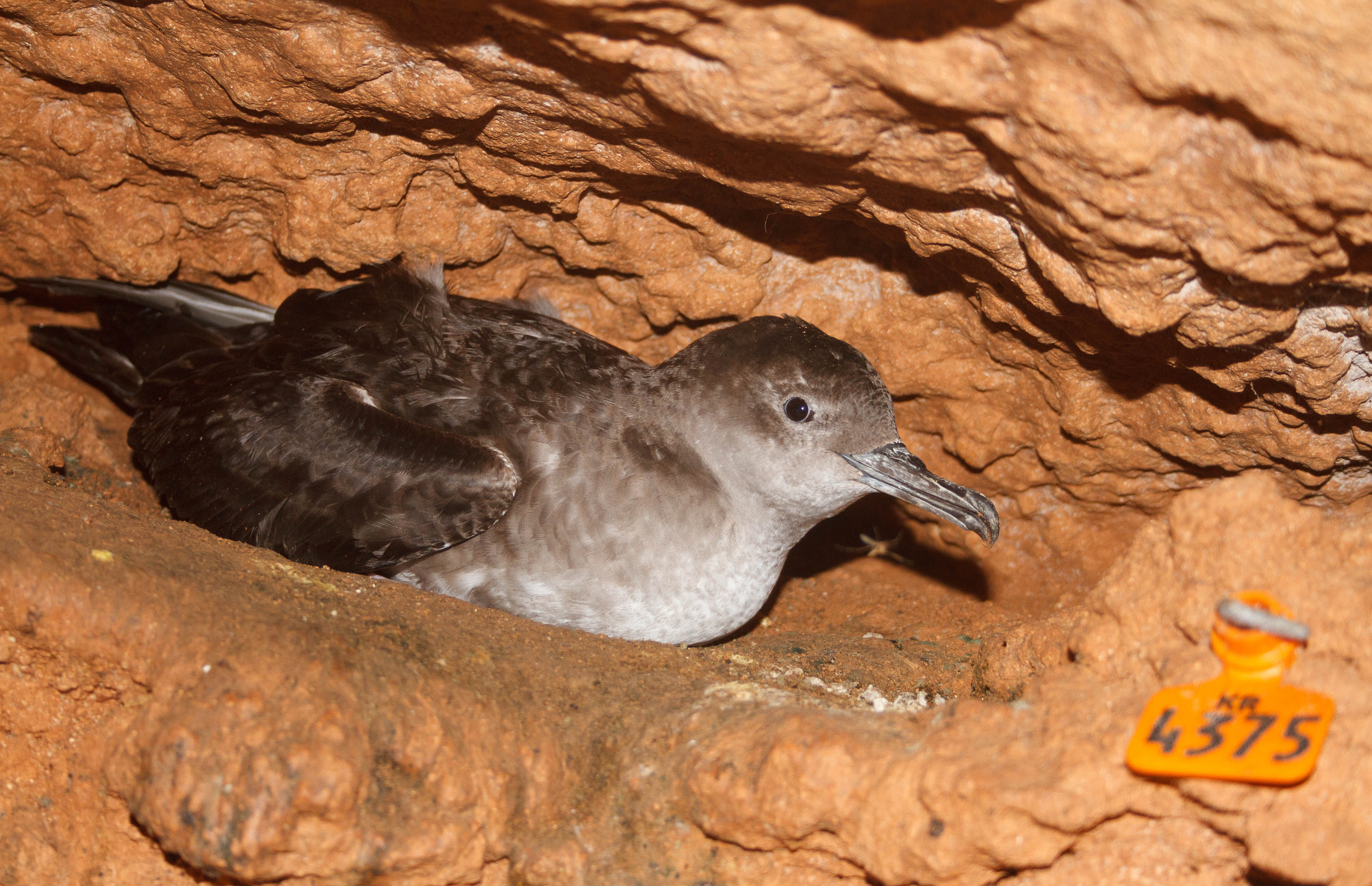
Balearic Shearwater at sea, photograph by Pep Arcos
Isabel Afán (Remote Sensing and GIS Laboratory, Estación Biológica de Doñana, Seville, Spain) and colleagues have published in the journal Marine Biology on tracking chick-rearing Balearic Shearwater Puffinus mauretanicus (Critically Endangered) at sea in relation to environmental factors.
The paper’s abstract follows:
“Foraging distribution of flying seabirds is constrained by environmental factors influencing individual decision-making. This must be particularly true during the breeding period, when individuals face additional limitations imposed by their central-place foraging behaviour. We used GPS data loggers and Argos PTTs to track the foraging flights of Balearic shearwaters (Puffinus mauretanicus) during the chick-rearing period of 2011–2014 in the Balearic Islands (Western Mediterranean). We identified main areas used by tracked birds and characterised their productivity patterns. Based on a spatial seascape approach of flight costs varying with time, shaped by environmental processes as winds, we also estimated flight costs to reach foraging grounds in outward and return trips from the colony. Individuals repeatedly used the closest areas on the Iberian continental shelf. However, sporadic and favourable wind conditions facilitated low-cost flight to more distant and equally productive areas of the western North African shelf.”
With thanks to Pep Arcos.
Reference:
Afán, I., Arcos, J.M., Ramírez, F., García, D., Rodríguez, B. Delord, K., Boué, A.,·Micol, T., Weimerskirch, H. & Louzao, M. 2021. Where to head: environmental conditions shape foraging destinations in a critically endangered seabird. Marine Biology 168. doi.org/10.1007/s00227-021-03830-1.
John Cooper, ACAP Information Officer, 13 April 2021

 Español
Español  English
English  Français
Français